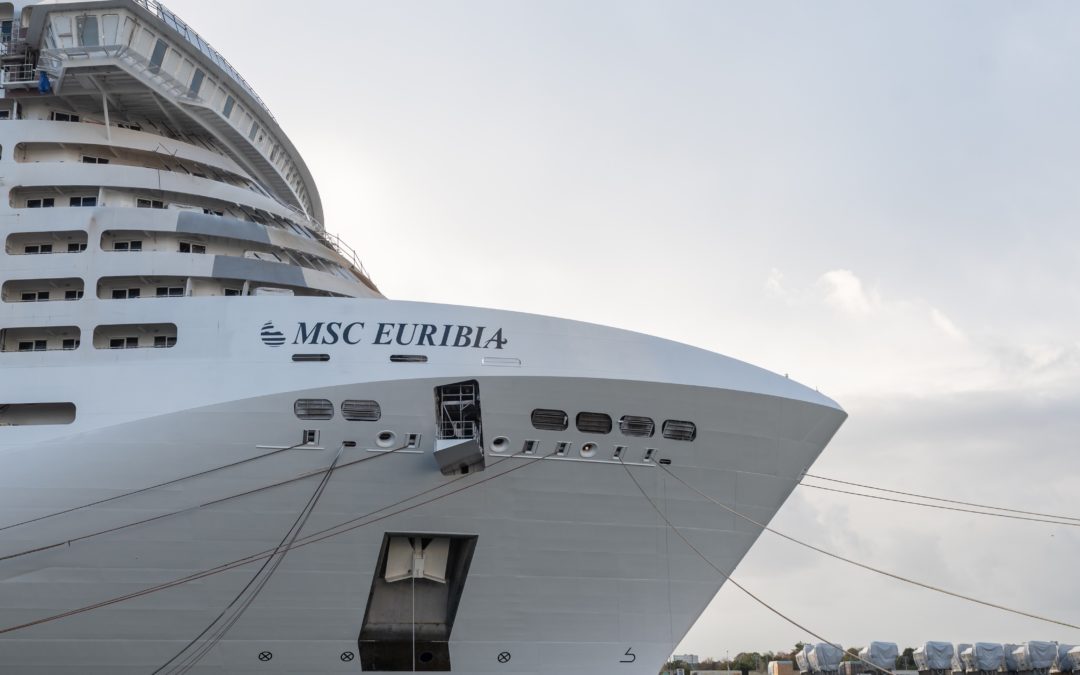The MSC Euribia will make its first route with 0 emissions demonstrating that in today’s age, zero-emission cruises are possible.
The new MSC Cruises flagship, called MSC Euribia, is ready to embark on its first journey of emitting zero net greenhouse gas emissions. It will depart on the 3rd of June from the French port of Saint-Nazaire with a four-day journey forecast, arriving in Copenhagen on the 7th of June.
MSC Euribia will be the first ship of this kind to make a zero-greenhouse gas emissions trio, thus demonstrating that sustainable navigation is attainable for cruisers leading to decarbonized cruising.
The cruise company has acquired more than 400 tons of BIO-LNG to show its commitment to renewable fuels and energy transition measures towards zero CO2 cruising.
BIO-LNG is a type of non-fossil fuel that is produced through a process in which biogas from organic waste, such as animal manure, food waste and mud is transformed into high-quality biomethane while after, liquefied at -162ºc. Its potential as a fuel is such, that it has been proposed as the energy of the future, replacing Diesel.
Therefore, MSC Cruises is established as the first cruise company to acquire BIO-LNG as a fuel source, thus beginning a life cycle with a significant reduction in producing harmful emissions to the atmosphere.
This initiative sends a clear signal to the maritime industry of the possibility of expanding perspectives by making a change towards a future with cleaner fuels and new energy sources.
Zero net shipping plans to use BIO-LNG with a mass balance system, which is considered as the most environmentally efficient way to obtain the benefits of renewable biogas. The entire supply chain must comply with the directive regarding renewable energy in the European Union and each batch of fuel produced must be certified by the International Sustainability & Carbon Certification.
To undertake this zero-emission journey, MSC Cruises has the expertise of the Finnish energy company Gasum OY, a leading biogas producer and the largest biodegradable waste fractions processor in the Nordic Countries. Additionally, this first voyage will have its own energy efficiency specialists and external onboard that will monitor and optimize all the technical aspects of the trip.
The new constructions of MSC Cruises are flexible in relation to fuel since they can be adapted to different types of renewable energy. In addition to considering existing energies, they also have in mind those that are expected to emerge in the coming years. The use of BIO-LNG means a reduction of up to 20% in greenhouse gas emissions compared to conventional fuels within the maritime industry and eliminates a large amount of Sulphur oxide, particulate emissions as well as the reduction of 80% nitrogen oxides.
Enrique Oliver, CEO of the Verlio Group stated: “As one of the leading companies in the logistics and shipping sector, and especially as MSC Agents for more than 40 years, we are very pleased and proud of the initiative that MSC Cruises has taken in terms of the energy transition, an initiative that is being followed by many other companies, and the cruise industry in general, towards more sustainable navigation. The future is already here, we have the technology, we have the will, we are taking steps and only need to gain momentum.”

